I am trying to get ReactJS working with IdentityServer4 via oidc-client-js library.
PROBLEM
I click the login button and I get redirected to IdentityServer4, once I login, I get redirect to /login-callback and then from there I get redirected to / but I get the following error in the console:
I am not sure what I'm doing wrong, but I've tried all sorts and nothing seems to work.
CODE
All code is open-source and sits here.
App.jsx
// other code ommited, but this is a route
<AuthHandshake path="/login-callback" />
AuthHandshake.jsx
import React from "react";
import { AuthConsumer } from "../AuthProvider/AuthProvider";
function AuthHandshake() {
return <AuthConsumer>{value => value.loginCallback()}</AuthConsumer>;
}
export default AuthHandshake;
AuthProvider.jsx
import React, { useState } from "react";
import { navigate } from "@reach/router";
import { UserManager, WebStorageStateStore } from "oidc-client";
import AuthContext from "../../contexts/AuthContext";
import { IDENTITY_CONFIG } from "../../utils/authConfig";
IDENTITY_CONFIG.userStore = new WebStorageStateStore({
store: window.localStorage
});
const userManager = new UserManager(IDENTITY_CONFIG);
const login = () => {
console.log("Login button click handled.");
userManager.signinRedirect();
};
const logout = () => {
userManager.signoutRedirect();
};
export function AuthProvider(props) {
const [user, setUser] = useState(null);
const loginCallback = () => {
userManager.signinRedirectCallback().then(
user => {
window.history.replaceState(
{},
window.document.title,
window.location.origin
);
setUser(user);
navigate("/");
},
error => {
console.error(error);
}
);
};
const providerValue = {
login: login,
logout: logout,
loginCallback: loginCallback,
isAuthenticated: user
};
const Provider = () => {
if (user) {
return (
<AuthContext.Provider value={providerValue}>
{props.children}
</AuthContext.Provider>
);
} else {
return <div className="auth-provider">{props.children}</div>;
}
};
return (
<>
<AuthContext.Provider value={providerValue}>
{props.children}
</AuthContext.Provider>
</>
);
}
export const AuthConsumer = AuthContext.Consumer;
On the IdentityServer side, I have set the post logout redirect to the same thing /login-callback
new Client
{
ClientId = "bejebeje-react-local",
ClientName = "Bejebeje ReactJS SPA Client",
AllowedGrantTypes = GrantTypes.Code,
RequirePkce = true,
RequireClientSecret = false,
RequireConsent = false,
RedirectUris = { "http://localhost:1234/login-callback" },
PostLogoutRedirectUris = { "http://localhost:1234/logout-callback" },
AllowedCorsOrigins = { "http://localhost:1234" },
AllowedScopes = { "openid", "profile", "bejebeje-api-local" },
AllowOfflineAccess = true,
RefreshTokenUsage = TokenUsage.ReUse,
}
Where am I going wrong?
